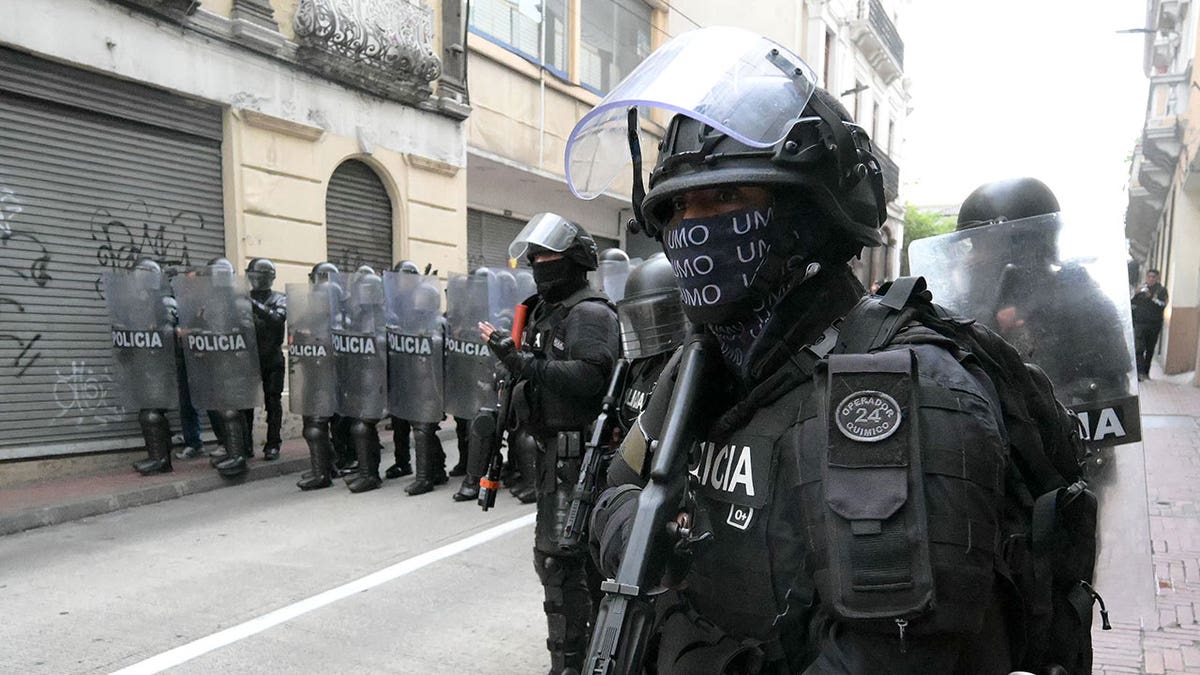NEWYou can now listen to Fox News articles!
Ecuador’s President Daniel Noboa on Tuesday implemented a 60-day state of emergency in an attempt to quell massive protests that broke out following his surprise removal of a diesel subsidy last week.
The decree was issued across seven of the nation’s two dozen provinces following “severe internal disturbance” and mobilized armed forces and national police.
The U.S. embassy in Ecuador said in a statement that the forces were mobilized in order to “to prevent the interruption of public services and maintain freedom of movement for the general population.”
4 THINGS TO KNOW ABOUT THE YOUNG CONSERVATIVE ANTI-CRIME PRESIDENT OF ECUADOR WHO WAS JUST RE-ELECTED
“The declaration does not restrict public movement or institute a curfew, but it does suspend the right to freedom of assembly at all times for any gatherings that seek to interrupt public services and impede the rights and liberties of the rest of the population,” the embassy added.
Footage of the protests showed Ecuadorians clashing with police forces in the capital city of Quito on Tuesday as protesters dismantled fences and barriers while police fired tear gas in the streets.
Despite the unrest, the State Department has not adjusted its travel advisory status, which currently advises Americans to “exercise increased caution” and avoid large crowds where violence could erupt.
The ongoing clashes came after the government on Friday announced it would eliminate the nation’s diesel subsidy starting Saturday and redirect the funds to social programs in an attempt to alleviate the country’s straining finances.

14K MIGRANTS HOPING TO ENTER US TURN BACK, UN FINDS
“For decades, the diesel subsidy represented a $1.1 billion burden on fiscal accounts, without truly reaching those who needed it,” the government said on X.
The decree drove up the price of diesel overnight from $1.80 a gallon to $2.80 – ending a decades-old subsidy in a move previously attempted but publicly opposed during prior administrations.
The government has argued the subsidy was not being adequately distributed and disproportionately benefited higher-income individuals and business sectors more than it was aiding vulnerable populations.
Noboa’s administration said it will use funds saved from the subsidy removal and allocate $220 million towards the transportation sector to prevent fare increases in public transportation.
But Ecuadorians remain concerned that it will directly impact the pockets of the nation’s poorest.
A price stabilization mechanism will be implemented on December 11, reported Reuters, in a move to protect consumers from global price swings, though details on the plan remain unclear.
Read the full article here
